Group Urges Ratification of Deep-Sea Mining Treaty

A group of former political and military leaders is urging the Senate to ratify the United Nations’ Convention of the Law of the Sea to kickstart U.S. deep-sea mining efforts, The Wall Street Journal (subscription) reports.
What’s going on: A draft letter seen by the Journal and signed by 331 individuals, including former Secretary of State Hillary Clinton and former Secretary of Homeland Security Michael Chertoff, calls “on Senate leaders to ratify the treaty in a bid for the country to stake its claim over areas of international waters where minerals such as cobalt and nickel, considered critical for the energy transition and in defense applications, can be sourced.”
- The treaty, which the U.S. recognized after it went into effect in 1994 but never ratified, is an international agreement governing the use of ocean resources.
Why it’s important: The treaty’s governing body, the International Seabed Authority, meets next week in Jamaica to determine “the final parts of the mining code—the set of laws and regulations that will eventually govern seabed mining. … As a nonvoting member, the U.S. has no say on laws pertaining to the seabed and also can’t be awarded exploration contracts to mine the seafloor in international waters. China currently has five.”
A groundswell: Deep-sea mining is gaining political support.
- Earlier this month, Reps. Carol Miller (R-WV) and John Joyce (R-PA) introduced a measure in support of it.
- “It’s vital to our security and economic interests that the [China]-controlled monopoly on these materials is broken,” Rep. Joyce said.
Cereal Contest Stirs Interest in Manufacturing

Gilster-Mary Lee Corporation has discovered a way to interest students in manufacturing: through their stomachs.
With support from the Illinois Manufacturers’ Association, the Chester, Illinois–based private-label food manufacturer recently chose the winner of its second annual “Create A Crunch” cereal-design contest for local high schoolers.
- “It’s critically important for our nation’s future that we attract the next generation of creators and makers, dreamers and doers who want to make our world a better place to live,” said IMA President and CEO Mark Denzler. “‘Create A Crunch’ is a fun and innovative way to encourage kids to explore all facets of manufacturing.”
A winner of an idea: The contest, which each year poses an essay-writing question on a manufacturing-related topic, came about when Gilster-Mary Lee was brainstorming ways to participate in National Manufacturing Month, which is October.
- “We were looking for a way to participate that would be meaningful and get kids—students—excited” about manufacturing, said President and CEO Tom Welge, a direct descendant of the company’s founding Gilster family, which started the firm in the late 19th century as the Gilster Milling Company.
- “We’d done a lot of celebrity cereals [such as a recent one featuring college basketball star Caitlin Clark], and they’re really popular. So I thought, why not involve students in the creation of a product and turn it into a way to educate them about manufacturing, maybe focusing on a particular topic in the industry we believe is important?”
An educational opportunity: “Create A Crunch” was born and is already off to a roaring start. In 2022, the contest garnered more than 300 entries from students throughout Illinois and Missouri. In 2023, it received more than 400.
- In addition to getting to choose the type of cereal, name and box design for their limited-run branded breakfast food, each year’s winner gets 2,500 boxes for their school, which “they can sell in a fundraiser, donate, whatever they want,” Welge said.
- The most recent winner, a senior at Notre Dame Regional High School in Cape Girardeau, Missouri, chose a blue, fruit-flavored ring-shaped cereal, which will be called “Bulldog Bites” in honor of her school’s mascot. The cereal boxes are slated for delivery in April.
- The 2023 writing prompt: What are the best things artificial intelligence can do for manufacturing, and do you think there are any things we should be concerned about?
Tough choices: Once the entry deadline has passed, a panel from Gilster-Mary Lee reads and rates every submission, then develops a short list of finalists. It sends these 10 names to the IMA for winner selection.
- The IMA has a difficult task before it in choosing the best submission, Welge added.
- “It’s not easy, but an understanding of the question is key, as is originality,” Welge continued. “The best essays [are] the ones that do the research and really put some thought behind it.”
More than a contest: Gilster-Mary Lee and the IMA are hoping that thought will transcend the contest and translate to participation in the manufacturing industry, which is in serious need of talent nationwide.
- In Illinois, the industry employs more than 650,000 people, Denzler said, making it “the single largest share of our economy.”
Perception change: “Create A Crunch” seems to be opening kids’ eyes to modern manufacturing, Welge said.
- “I think we have more visibility [now] into what we do,” he told us. “We produce for wholesalers across the U.S. and outside as well. So this is a way for us to pull back the curtain a bit and let people know there’s pretty big-sized manufacturer in this rural area, and we’re looking for talent.”
Up next: The contest may have started with cereal, but don’t be surprised if other foods come into play, said Welge, whose company also makes pancake mix, macaroni and cheese and many other convenience foods.
- “Should we do ‘Make A Mac’ next year? We’re not ruling anything out.”
Americans Oppose LNG Export Pause, NAM Poll Finds
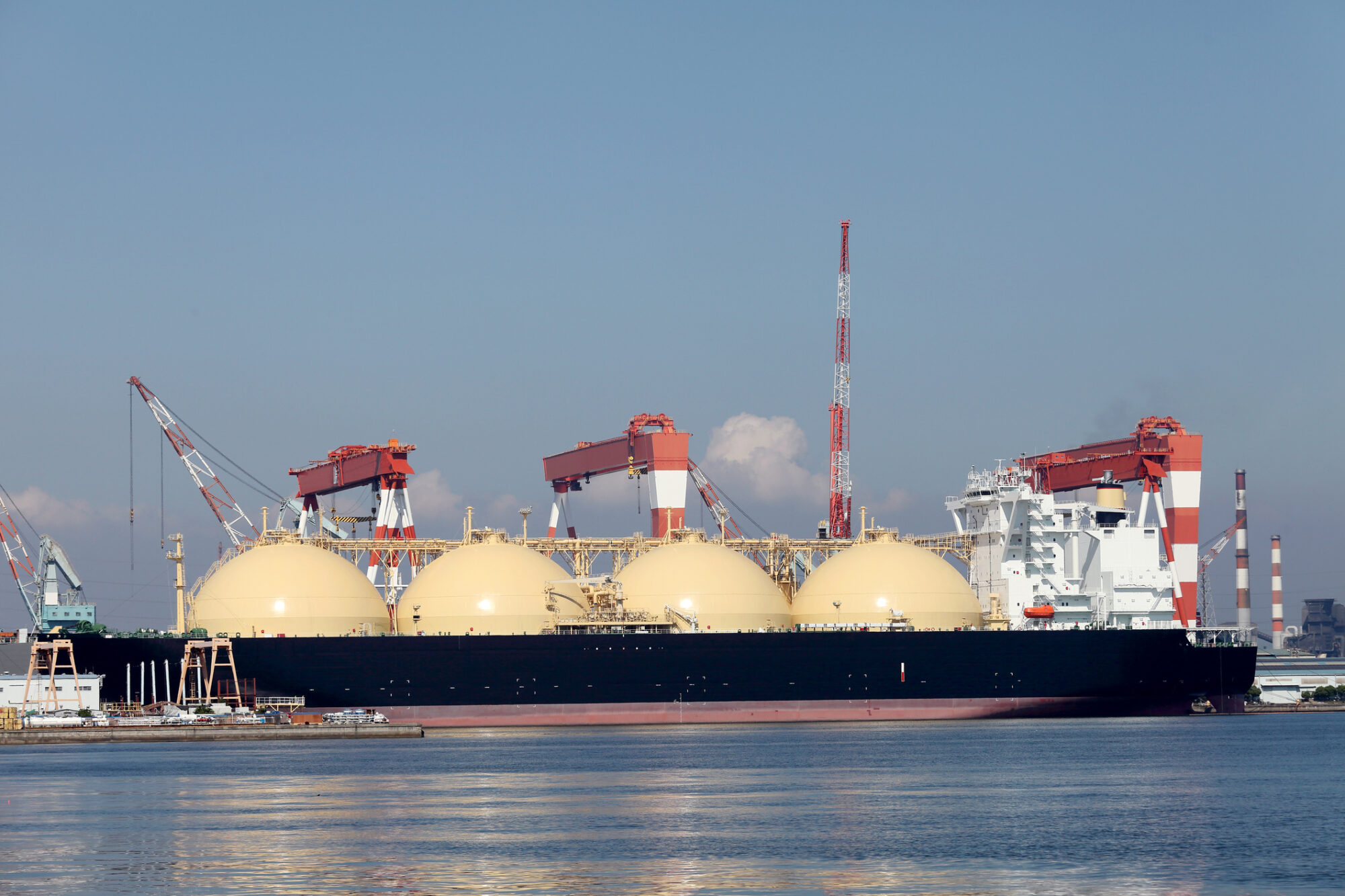
Americans overwhelmingly support exporting U.S. natural gas, a new NAM poll reveals.
What’s going on: In addition to wanting continued exports of LNG, respondents believe the U.S. must boost its production of oil and natural gas, build more energy infrastructure and reform the broken permitting system, according to the findings of an NAM survey of 1,000 registered voters conducted March 15–18.
- In January, the Biden administration announced a moratorium on LNG export permits.
- Europe is the primary destination of exported U.S. LNG.
The details: Among the survey’s key findings:
- Some 87% believe the U.S. should continue exporting natural gas.
- About 86% say the permitting system must be changed so energy projects are approved and online in less time.
- Approximately 76% say the U.S. needs more energy infrastructure, such as port terminals.
- About 74% say the U.S. needs to increase domestic oil and natural gas production.
- And 72% would like to see the U.S. use an all-of-the-above energy approach that includes both traditional and renewable energy sources.
The last word: “The American public agrees: LNG exports are critical to U.S. energy security, creating well-paying jobs and supporting our allies in Europe and Asia,” said NAM President and CEO Jay Timmons.
- “This poll underscores the need for President Biden to immediately direct the Department of Energy to roll back this misguided and counterproductive policy.”
NAM: Make Employer-Sponsored Health Insurance Easier

Manufacturers are committed to providing employer-sponsored health insurance to their workers, the NAM told Congress late last week—and that’s why any changes made to the Employee Retirement Income Security Act of 1974 should facilitate rather than hamper those offerings.
What’s going on: “ERISA underpins manufacturers’ ability to provide health insurance to their employees,” NAM Vice President of Domestic Policy Charles Crain said in response to a call by the House Committee on Education and the Workforce majority for comments on how to improve ERISA as the law’s 50th anniversary nears.
- “The law allows manufacturers to provide uniform benefits to workers located across multiple states, and to tailor those benefits to meet the unique needs of their workforces.”
Why it’s important: Manufacturers have continued to offer high-quality health care plans to their employees—even absorbing cost increases in recent years to keep premiums affordable—but they “increasingly find their efforts to be responsible stewards of their health plans undermined by the complexities, bureaucracy and ineffective design of the broader health care system,” Crain told the committee.
What should be done: It is ERISA’s federal preemption of state and local laws that allows manufacturers to offer uniform health benefits, Crain continued, and that preemption must be preserved.
- “Eroding or eliminating preemption would make it significantly more difficult for manufacturers operating in multiple states to offer their employees health insurance because the manufacturer would be forced to comply with cumbersome and potentially conflicting state-based rules, a costly and untenable situation,” he said.
- In addition to maintaining ERISA preemption, Congress should seek to “make health care data more accessible and user-friendly for employer plan sponsors,” and reduce regulatory burdens on employers.
- Given that pharmacy benefit managers contribute to the increasing costs of providing employer-sponsored health care, the NAM also continues to call for PBM reform to increase transparency into these underregulated actors.
Trend of the Week: Smart Factories
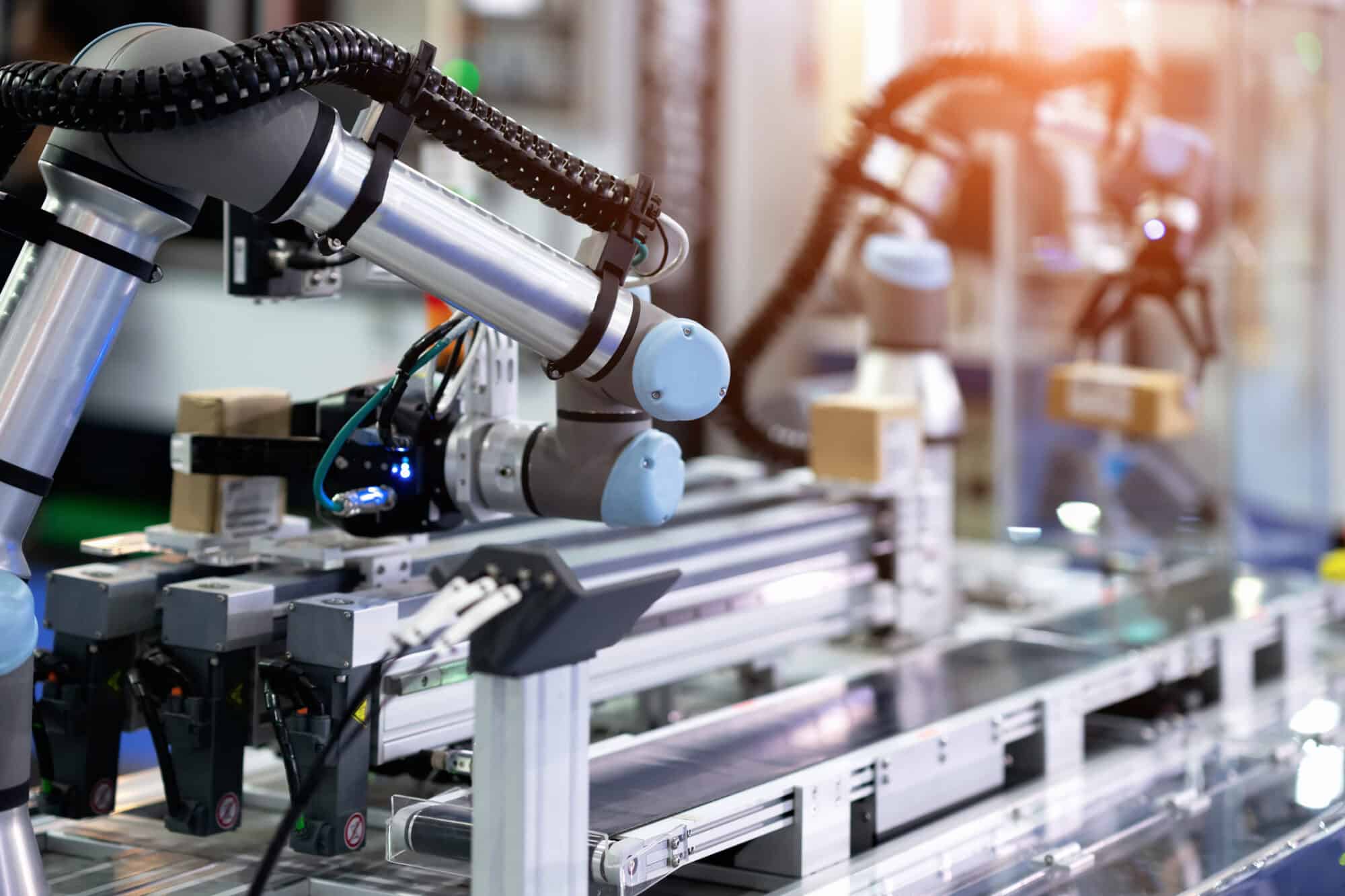
In 2024, factories will just keep getting smarter. From product design to supply chain management, the sophistication of Manufacturing 4.0 (the current wave of technological evolution) will keep on growing. Here’s what manufacturers should know about these advances and how the NAM can help.
What manufacturers should do: Manufacturers looking to make their factories smarter are focusing on four key strategies:
- Creating efficiencies to improve the bottom line with automation and other M4.0 technologies
- Leveraging smart factories to overcome challenges, such as the workforce crisis and supply disruptions
- Ensuring connectivity on the factory floor to allow for use of plant data to create new business models and revenue streams
- Using M4.0 technologies to improve quality control, speed time to market, enhance safety, boost profits, contribute to sustainability goals and engage employees
Expert opinion: Companies are increasingly investing in industrial connectivity, according to PTC Vice President of Market Development of IoT James Zhang.
- “Rather than approaching industrial connectivity with point-to-point integrations, companies are developing holistic, enterprise-wide strategies,” he explained.
- “This approach streamlines and standardizes data from heterogenous manufacturing environments to a single industrial connectivity platform to provide secure, reliable data for OT systems, including MES and SCADA, and IT systems, including data analytics and industrial IoT.”
Resources for you: Check out these NAM resources that will help guide you through these technological changes:
- The Manufacturing Leadership Council, the NAM’s digital transformation division, offers extensive advice and expertise on Manufacturing 4.0 technologies and how to use them.
- NAM Cyber Cover can help you protect your smart factories, as the increase in digitization also opens new avenues for cyber criminals.
- Check out this podcast from the Innovation Research Interchange (the NAM’s innovation division), which covers current research into the adoption of cutting-edge technologies.
Read the full 2024 trends report here.
NAM Echoes Senators’ PBM-Reform Call

Pharmacy benefit managers—entities that increase health care costs for both manufacturers and manufacturing workers—are long overdue for reform, the NAM said yesterday.
What’s going on: Senate Finance Committee Chairman Ron Wyden (D-OR) and Ranking Member Mike Crapo (R-ID) announced at a Thursday press conference that they will ask Senate leadership to include in a government funding bill at the end of March legislation to rein in PBMs.
- The NAM, which has been vocal for years about the need for PBM reform , immediately joined the senators’ call for action.
- “Manufacturers stand with Chairman Wyden and Ranking Member Crapo in their calls for PBM reform as soon as possible,” said NAM Managing Vice President of Policy Chris Netram. “Manufacturers are committed to providing health benefits—with 93% of manufacturing workers eligible for employer-sponsored health insurance—even as PBMs continue to drive an increase in health care costs.”
Why it’s important: PBMs make health care more expensive for manufacturers and manufacturing workers by putting upward pressure on the list prices of medicines. Additionally, the three largest PBMs control 80% of the market, giving them tremendous leverage when negotiating contracts with manufacturing employers.
- What’s more, they operate with very little federal oversight and offer minimal transparency into their business models.
What should be done: An overhaul of the PBM framework should include solutions that effectively address rebate, fee and contract structures.
- “PBM reform, including in the commercial health insurance market, must increase transparency, ensure PBMs do not pocket manufacturer rebates and delink PBM compensation from the list price of medications,” said Netram.
Dockworker Labor Talks to Restart Amid Tension
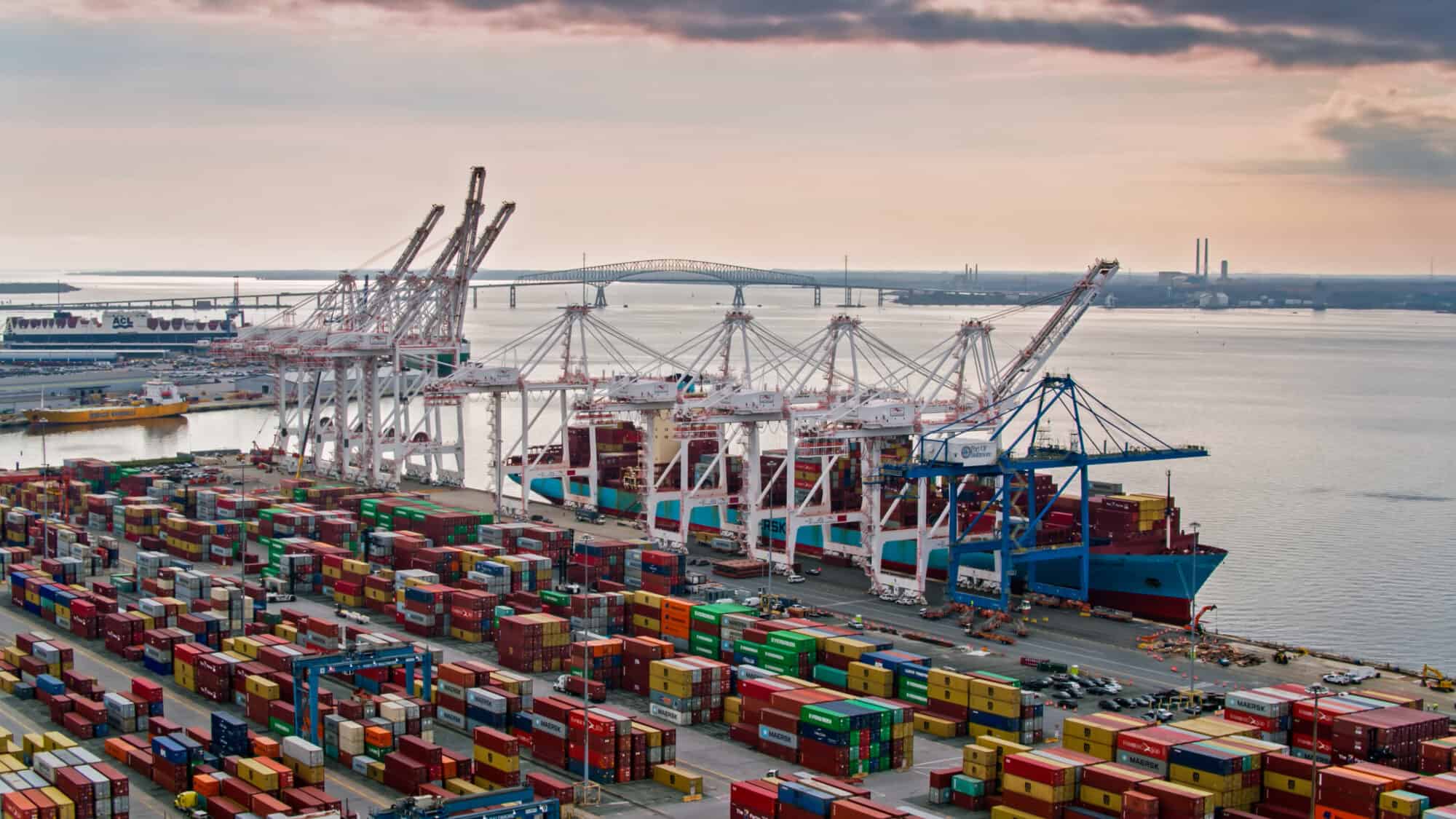
Contract talks between dockworkers and their employer on the East and Gulf coasts have yet to begin, but tensions are already flaring, The Wall Street Journal (subscription) reports.
What’s going on: “The International Longshoremen’s Association … is already threatening a strike against shipping companies and port employers if a deal on a new multiyear contract can’t be reached before the current agreement expires Sept. 30.”
- The ILA, which represents more than 45,000 dockworkers “at ports from Maine to Texas, has told local chapters to resolve local work issues with employers by May 17 so that a coast-wide deal can be negotiated before the current contract expires. Formal negotiations would be scheduled once the local agreements are reached.”
- Talks began in late 2022 but stalled a year ago.
The background: In September, after 14 months of often-tumultuous negotiations and several walkouts and work stoppages, West Coast dockworkers reached an agreement with their employer, the Pacific Maritime Association.
- The Biden administration stepped in to help broker that deal.
Why it’s important: “Any walkout would hit the gateways in the middle of the busiest part of the shipping season, when retailers and other importers prepare for holiday consumer sales.”
- To avoid potential delays, East Coast importers are expected to bring in holiday-season goods early this year or send more goods from Asia to the U.S. via West Coast ports.
- The large wage increases ILA is said to be pursuing could prove difficult for carriers to sustain, given the post-pandemic decline in freight demand.
Extend Pro-Growth Tax Policies, Small Manufacturer Tells Senate
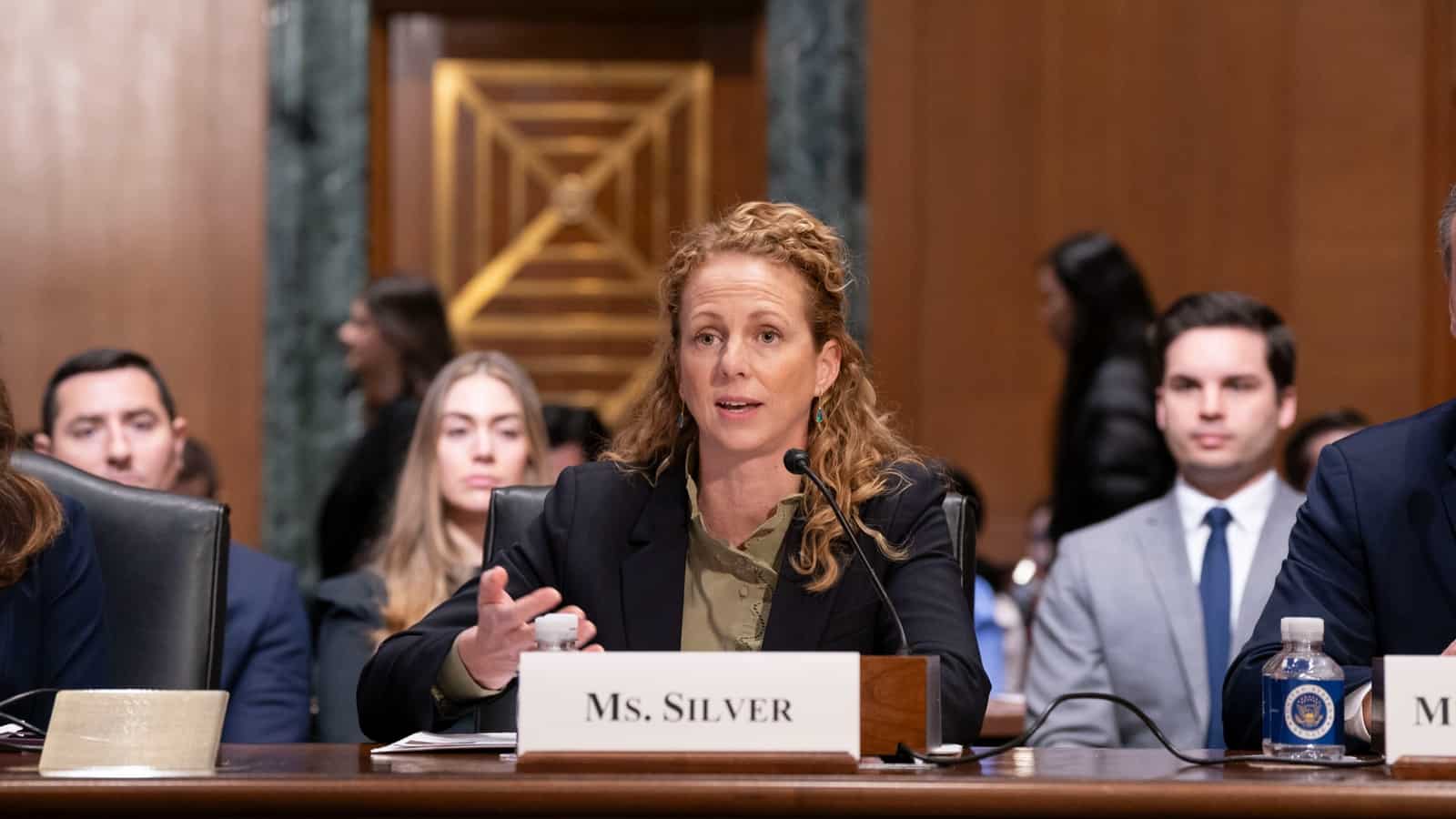
If manufacturing is a team sport, the rules of the game are the U.S. tax code—and to ensure a level playing field for everyone, that code must remain constant, Ketchie President and Owner and NAM Small and Medium Manufacturers Group Chair Courtney Silver told the Senate Finance Committee Tuesday.
The main way to do it, she said, is by restoring three key tax policies: immediate expensing for domestic R&D, enhanced interest deductibility and full expensing.
What’s going on: Thanks to the 2017 Tax Cuts and Jobs Act, Silver’s family-owned, North Carolina–based precision machining company and many other manufacturers were able to grow their companies, invest in workers and give back to their communities, Silver said in testimony during the “American Made: Growing U.S. Manufacturing Through the Tax Code” hearing.
- But two years ago, “the rules of the game began to change, making it more difficult for manufacturers to thrive in America,” she went on. “Crucial policies began to expire.”
Why it’s important: If Congress does not act soon, additional pro-growth tax cuts will expire, further harming manufacturing in the U.S.
- And “more tax increases are on the way,” Silver told committee members, referring to the additional TCJA provisions scheduled to expire next year. “Other critical provisions expire at the end of 2025, which will have a direct impact on the manufacturing sector. Ketchie will be directly harmed by the loss of the pass-through deduction, the increases in our tax rates and the reduced protection from the estate tax.”
Unstoppable combination: The 2017 tax reforms, “paired with pro-growth policies like immediate expensing of capital investments, drove historic growth in the manufacturing sector,” Senate Finance Committee Ranking Member Mike Crapo (R-ID) said during the hearing, citing NAM data on the significant, positive impact of the cuts.
- Indeed, “Ketchie might not be here today if we did not have the economic boom caused by tax reform in the years prior to the pandemic,” said Silver, who called immediate expensing for domestic R&D expensing, enhanced interest deductibility and full expensing “a game-changer for the manufacturing industry.”
Team players: Congress must restore these three provisions and other critical provisions that are set to expire next year.
- “Manufacturing truly is a team sport, and you are all on that team,” Silver told the committee. “Small companies like mine are counting on you to play with us rather than against us, and to ensure that our tax code does the same.”
- The NAM has called on the Senate to advance the House-passed Tax Relief for American Families and Workers Act, which would restore the three key tax policies.
NAM Hosts German, Mexican Delegations

The NAM was host to multiple representatives and dignitaries from Germany and Mexico last week for a series of meetings aimed at strengthening the ties between the two countries and the U.S.
What’s going on: On different days last week, the NAM met with German Ambassador to the U.S. Andreas Michaelis; the leadership of the Mexican Business Coordinating Council; the presidents of the Federation of German Industries and the Germany-based Mechanical Engineering Industry Association; and a delegation from the Germany-based Transatlantic Business Initiative.
- A discussion common to all the gatherings: improving international cooperation to support closer economic partnerships between our countries.
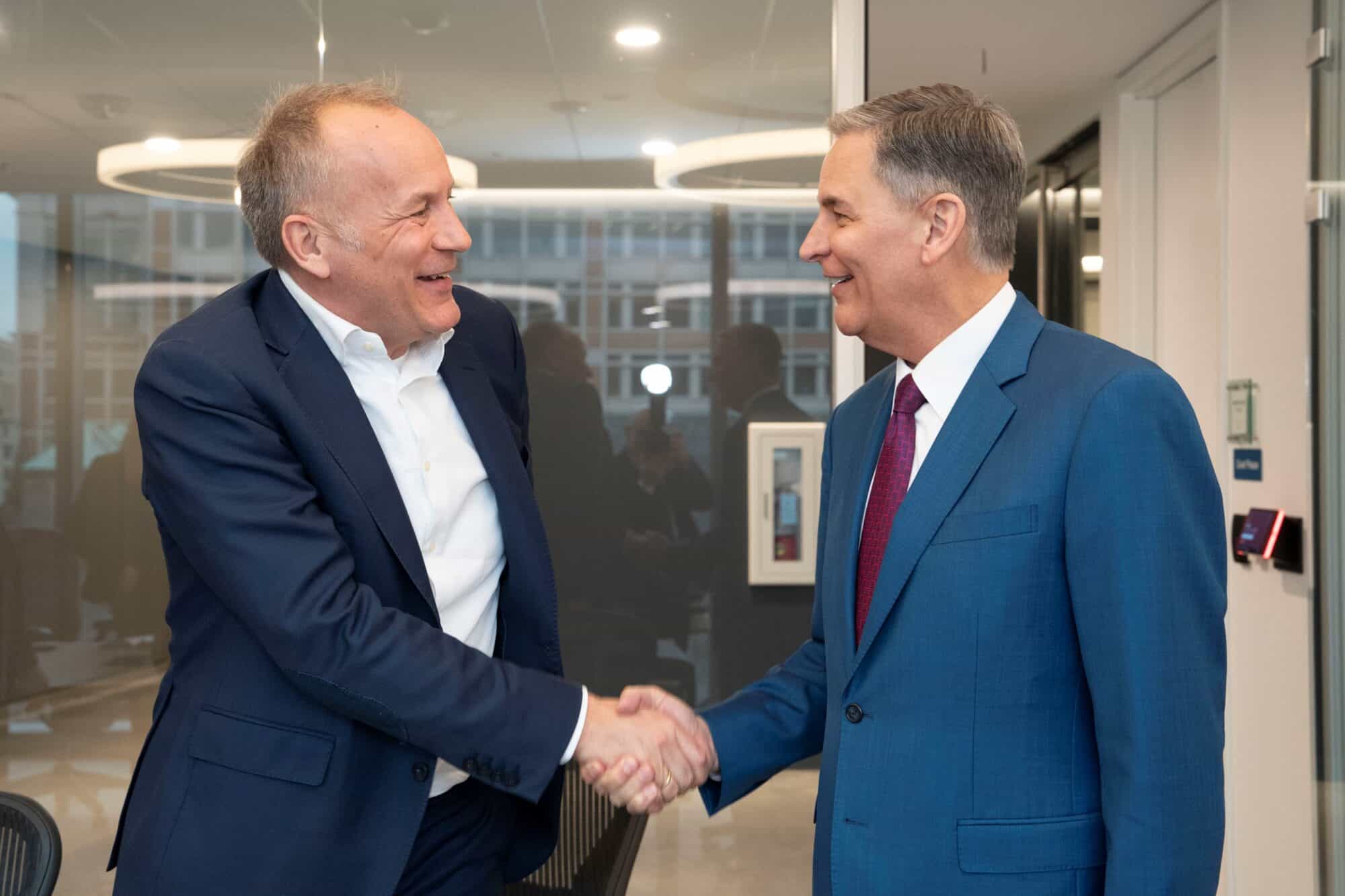
The U.S.–Europe relationship: In a meeting with Michaelis, Germany’s ambassador to the U.S. since August 2023, the NAM expressed the importance of a continued, positive economic relationship between the U.S. and Europe—especially now, given Russia’s continued war against Ukraine.
- “Great to meet with German Ambassador to the U.S. Andreas Michaelis to discuss the importance of strengthening our economic ties and our shared democratic values,” NAM President and CEO Jay Timmons wrote in a social post.
- Germany, the fourth-largest economy in the world, is a vital U.S. trade and investment partner. In 2022, it contributed $196 billion of manufacturing trade and $218 billion of manufacturing investment.
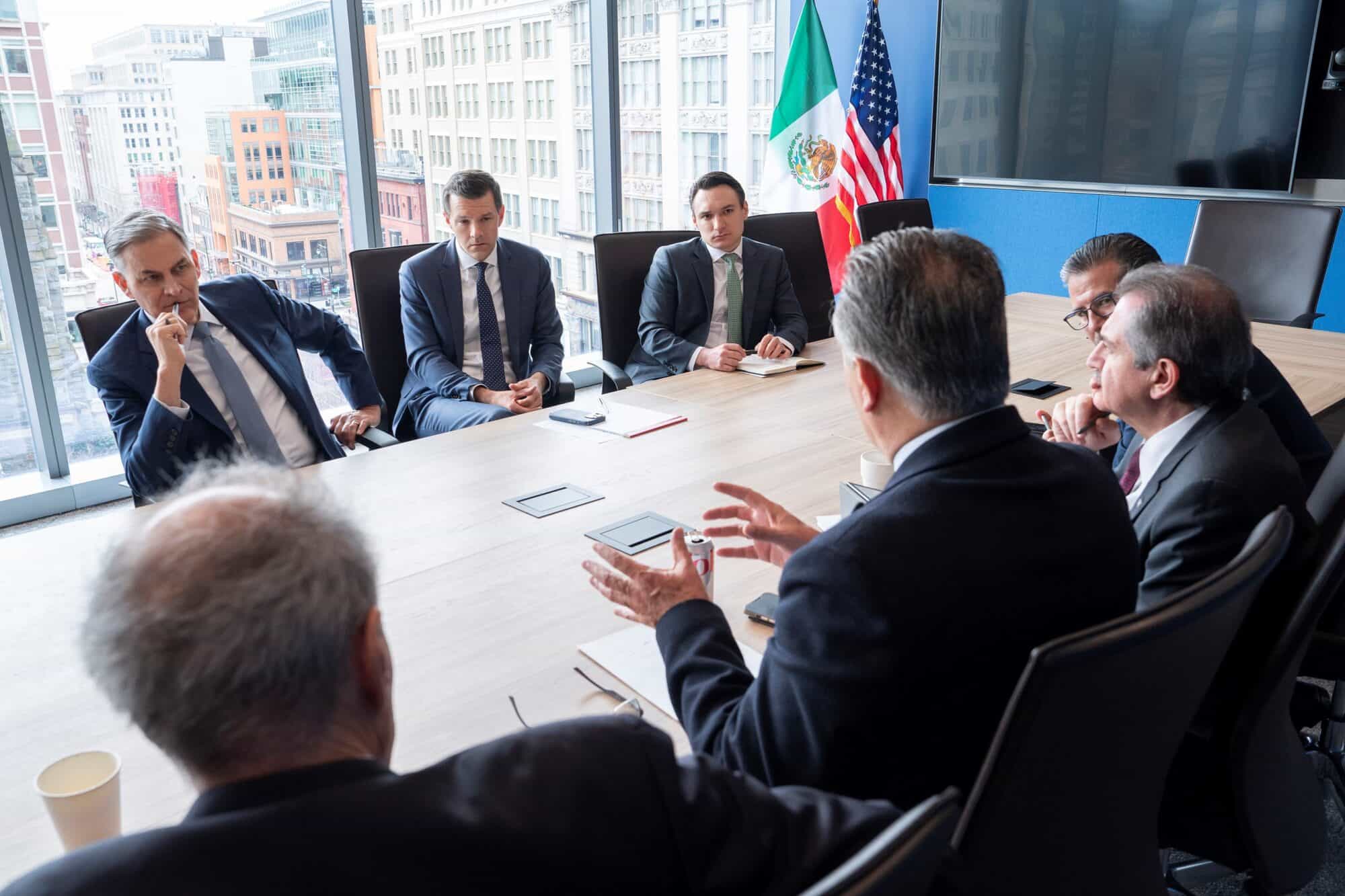
Challenges remain: However, some proposed and expected European Union regulations present a hurdle to future collaboration, a matter the NAM raised in its meetings.
A key partner: In their discussion with Mexican Business Coordinating Council President Francisco Cervantes—with whom Timmons met last summer ahead of the third United States–Mexico–Canada Agreement “Free Trade Commission” in Cancun, Mexico—NAM leaders underscored the significance of the increasingly close trade ties between the U.S. and Mexico.
- In 2023, for the first time in two decades, Mexico became the leading source of goods imported into the U.S., and in 2022, the value of the U.S. products and services trade with Mexico was $855 billion.
- The CCE is Mexico’s broadest business federation.
Concerning disruptions: Last year, in a move that worried both the NAM and the CCE, the U.S. twice suspended the processing of commercial imports from Mexico so it could redirect U.S. Customs and Border Protection personnel to handle an influx of migrants at the U.S.–Mexico border.
- These temporary closures cost manufacturers in the U.S. hundreds of millions of dollars each day.
USMCA: The groups also discussed the USMCA, underscoring the importance of maintaining this critical agreement while also continuing to spotlight commercial challenges in Mexico:
- Its energy policies, which favor Mexican energy firms and have denied and revoked permits to major U.S. energy investors
- Its de facto ban on genetically modified corn, as well as some of its telecommunications-sector policies and its treatment of state-owned enterprises
NAM to White House: Maintain, Improve Trade Facilitation Measure
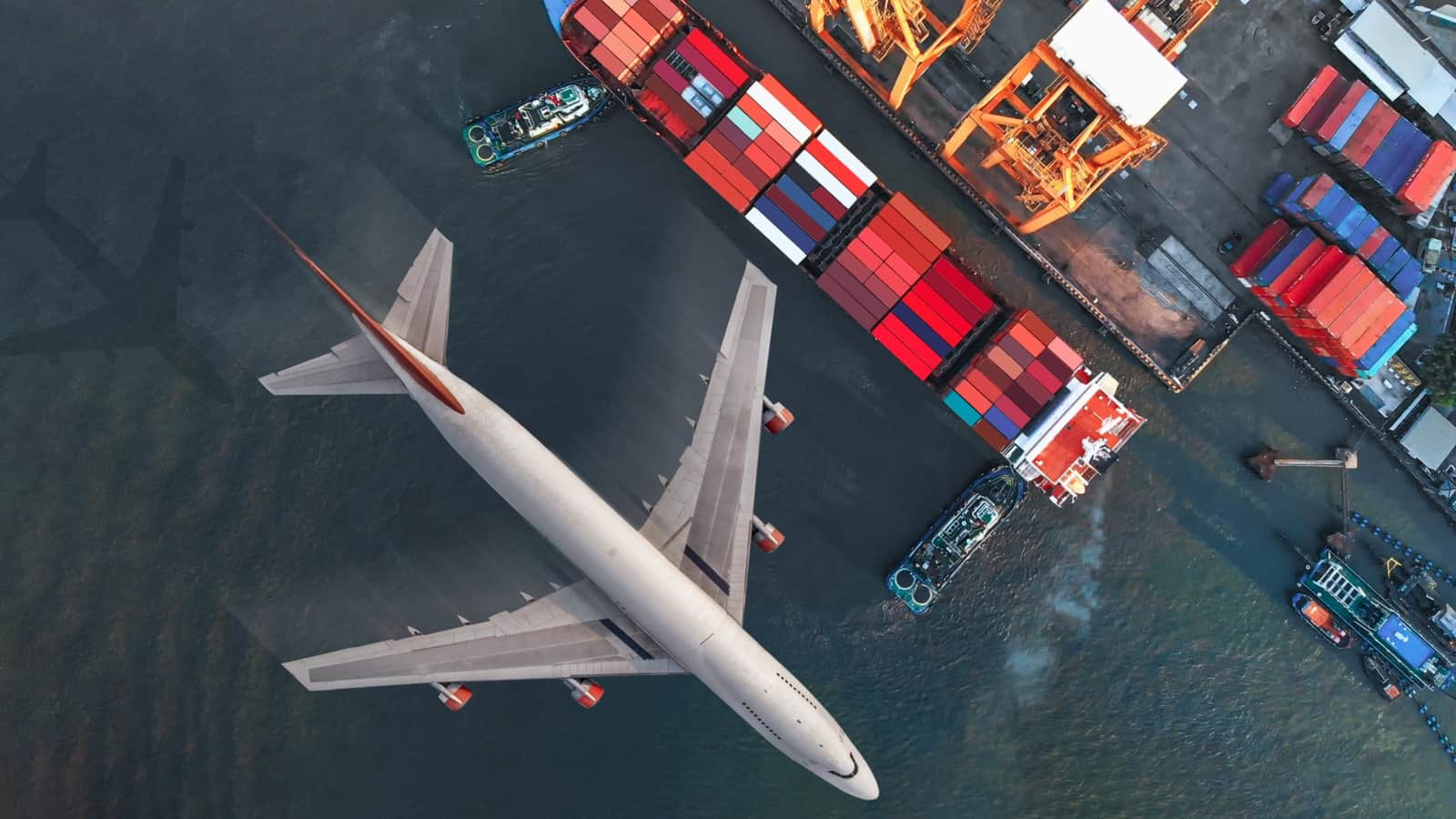
As lawmakers consider proposals to scale back the de minimis treatment of low-value goods entering the U.S., the NAM and several of its partners are reminding stakeholders of the importance of having a streamlined, tariff-free customs entry process for such imports.
- These shipments are still subject to all U.S. laws and information requirements that enable enforcement at the border.
Last week, a group consisting of labor unions, select business associations and other stakeholders formed a coalition against certain de minimis imports, according to CNBC.
A critical provision: The NAM and six allied groups pushed back, urging the White House to maintain the so-called “de minimis” import entry type, which permits goods valued at less than $800 to enter the U.S. in a streamlined manner and tax-free.
- “De minimis has benefitted thousands of American small businesses across all sectors,” said the groups. “For example, de minimis allows businesses to obtain inputs for domestically manufactured products into the United States more efficiently and with fewer unnecessary administrative requirements.”
- “It has also made purchasing goods online more affordable and accessible for consumers at a time of inflation and supply chain challenges. … The average value of a de minimis package is roughly $50. If de minimis were to be eliminated or significantly degraded … a $50 delivery could become a more than $100 delivery.”
Combating disinformation: Proponents of eliminating or significantly degrading de minimis cite several concerns with the entry type that are unfounded, the NAM and its allies said.
- “There is no evidence that illegal products are more prevalent in de minimis shipments,” they went on, citing a CBP executive who refuted the false claim that de minimis shipments aren’t screened.
- When it comes to fentanyl, “[a]s government enforcement statistics make clear, the overwhelming majority of fentanyl enters the United States in large shipments from Mexico … smuggled in passenger vehicles, by pedestrians, and concealed in truck shipments. De minimis packages, on the other hand, arrive in the United States overwhelmingly by air transportation throughout the country.”
- Finally, eliminating the de minimis entry type would strain border control. “[D]egrading de minimis and routing one billion shipments into more resource intensive processing streams would require tens of thousands of CBP personnel to process information that is not related to enforcement and collect duty, rather than spending that time on activities that would actually interdict illicit items.”
Other solutions: The letter urges the administration to consider “practical, innovative ways to improve de minimis without increasing costs for consumers and small businesses.”
- Customs and Border Protection should use the authority it already has to build on existing enforcement of U.S. trade laws at the border by separating the vast universe of compliant shipments from illicit packages.
- This can be done through a rulemaking to formalize ongoing tests that require additional information on low-value shipments, closing information sharing gaps and employing a more “future proof” approach to include the use of technology.
